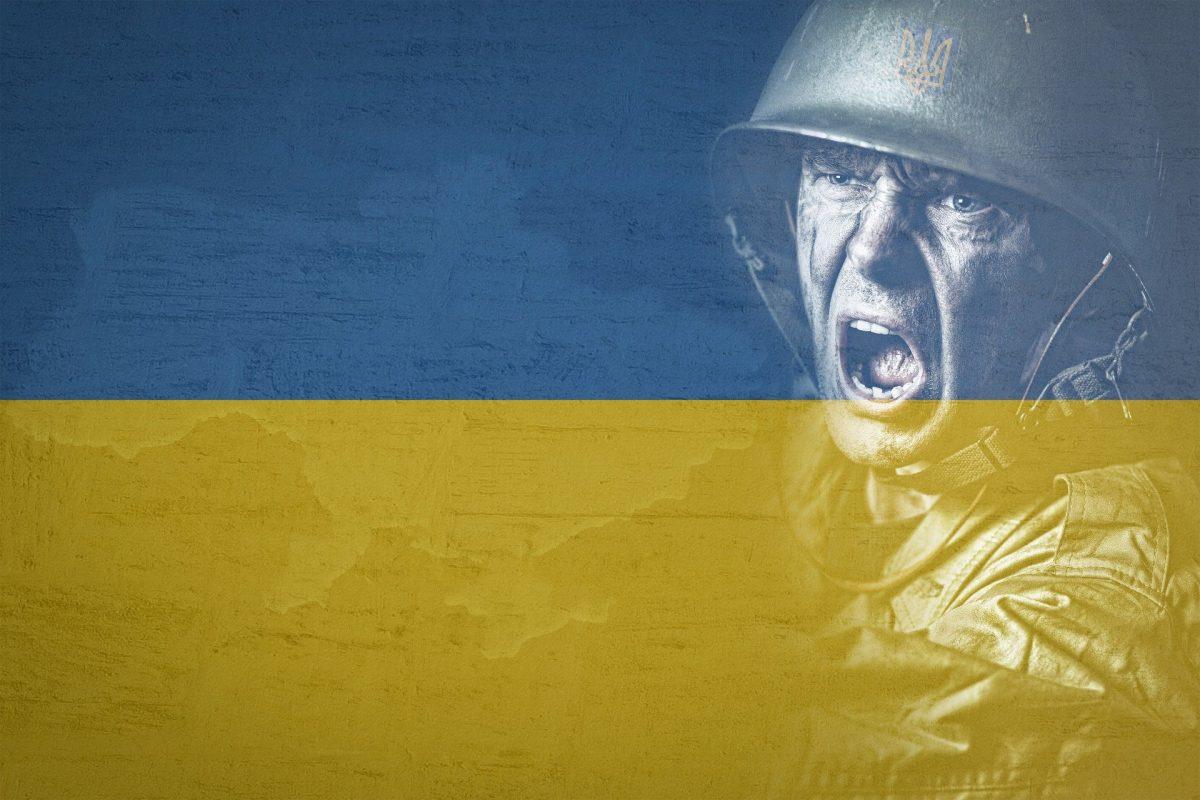The world-historic address delivered by Russian President Vladimir Putin, which immediately preceded the invasion of Ukraine, contained a barrage of rhetorical hail marys. The content of the speech boiled down to an autocrat throwing everything he had at the wall in a desperate attempt to make something stick. Nothing did, and the free world is rightfully condemning the tragedy unfolding in Europe.
Putin attempted to spin many narratives, all of which are notable and worthy of analysis. He tried to position himself as simply cleaning up the mess left by the collapse of the U.S.S.R., and presented this invasion as revenge for the fall of Tsarist Russia in 1917, albeit a century overdue. This was accompanied by a fictitious account of Ukraine’s history in the 20th century with the claim that it was never anything other than Russian land.
All of it was meant to obscure something we all know: Putin wants Ukraine to be part of Russia. That is why this invasion is happening. This is his war and he owns it.
The most insidious narrative, and the one that directly immitates the United States’ approach to imperialist aggression, is the framing of the invasion as an effort to “denazify” Ukraine.
I can imagine many of us have learned a lot of positive things about Ukraine lately. Their rich history and culture, the resilience of their people and the heroism of their President–a former comedian, of all things– have been on full display for a week now.
A more unfortunate and surprising fact about Ukraine is its significant Neo-Nazi problem. Namely, the existence of the Azov Battalion, an official faction of their military with an alarming affinity for white supremacy.
To describe them as a vocal minority within their armed forces would minimize the situation. Think of the KKK becoming a part of our National Guard and you have a pretty good idea of what we’re dealing with.
This problem isn’t limited to one faction and there are a number of militias with similar histories that have been absorbed into their armed forces.
Before we move forward, let me make one thing crystal clear: this does not justify the invasion. In fact, I struggle to think of what could justify something like this. And even if it did– again, let me stress: it doesn’t– it would be unwise to assume that Putin is acting in good faith.
It should be a given that this is a problem better solved within Ukraine’s borders. If anything, Russia’s invasion will likely make the problem worse.
But it is a problem, and to say so is to acknowledge reality.
There in lies the problem, though, because simply acknowledging reality is what we did in the early 2000s.
Now, contrary to popular belief, Middle Eastern society has a lot going for it. The region serves as a hub for many world religions and its contributions to science, art and literature speak for themselves.
But it doesn’t take a magnifying glass to see that many Middle Eastern states, including Afghanistan, are extremely regressive when it comes to women’s rights.
And this reality was acknowledged by the U.S. in the early days of the Afghanistan war. After the initial bombing campaign, it became clear that our mission– revenge for 9/11– would not be accomplished easily.
We had failed to capture Osama Bin Laden in the early months of the invasion, despite the fact that the Taliban was prepared to hand him over. And once we had deposed the Taliban from power, our coalition had no clue what to do next.
Our solution was to re-frame the whole ordeal into a nation-building effort. The central focus was to improve the lives of women and girls in Afghanistan.
We were not successful. We did make noticeable gains, but the results were fragile and often compromised by the war itself. It’s difficult to attend a school that’s been hit by an airstrike.
And in order to speak about this honestly, we have to address that our military and its allies regularly killed civilians in areas of the country they controlled, which actively worsened the lives of the women who lived under our occupation.
We didn’t just use this strategy once. We took up a nearly-identical cause to invade Iraq in 2003, where our impact on this front was negligible.
Considering all of this, the parallels are obvious. Putin is ripping a page from our playbook. He is using regressive identity politics in a particular country to justify an invasion. In both instances, the invading power views itself as a liberator and seeks to remake an entire society in its image without the consent of the people who live there.
These observations are only a snowflake in the flurry of information we’ve all had to process within the past week. Being aware of these similarities can help us understand what we’re actually witnessing. This war is not a unique or spontaneous event. It is the continuation of a 21st-century style of imperialism that we introduced to history. And just like our projects in the Arab world, I truly believe that this is going to fail.
At the time of this writing, Putin is losing on all fronts. He wanted to take Ukraine’s capital city of Kyiv and take out Zelensky within a few days, but the Ukrainian military has halted this effort better than expected. His nation’s currency is hemorrhaging value on the world market, and his efforts have only strengthened the EU. He clearly wants us to escalate this into a nuclear conflict, but we’re not taking the bait.
Another source of optimism is the fact that our current President saw this strategy for what it was over a decade ago, and rejected it firmly:
“I am not sending my boy back there to risk his life for women’s rights! It just won’t work, that’s not what they’re there for.”
We started two wars using this strategy and both of them ended in disaster, as all wars do. We lost the game, picked up our ball and went home. Putin is about to learn why we did.
For comments/questions about this story, tweet @TheWhitOnline or email [email protected].
























































































































































!["Working with [Dr. Lynch] is always a learning experience for me. She is a treasure,” said Thomas. - Staff Writer / Kacie Scibilia](https://thewhitonline.com/wp-content/uploads/2025/04/choir-1-1200x694.jpg)









































